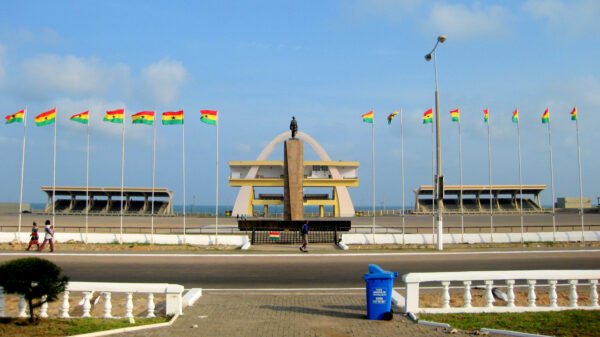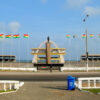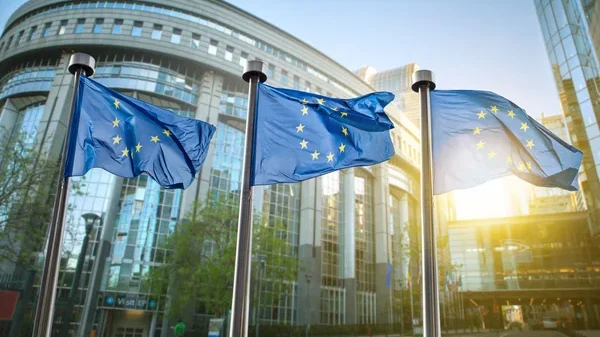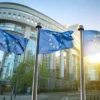Roar writer Violeta Fernandez Dieguez on the growing power of the far-right German political group Alternative für Deutschland (AfD).
Across Europe, nationalism has made a comeback. From Spain to Sweden, far-right parties have quickly gained political power and toppled the status quo. Germany is no different. Now, with the looming September elections, the country’s political stability is at play.
A brief history of Merkel’s cabinets
Since 2005, Angela Merkel has occupied the head of government. Centre to centre-right formed the first three Merkel cabinets. The centre-left Social Democratic Party (SPD) made an appearance on the first and third coalitions. On the other hand, the neoliberal Free Democratic Party (FDP) gained traction in the second coalition. These first thirteen years of government were marked by stability.
The 2018 elections changed the German political spectrum. The Christian Democratic Union (CDU), Christian Social Union (CSU) and SPD still made up the cabinet of ministers. Albeit, with a diminished majority. Additionally, the coalition was fragmented from within. This is best represented by the 2018 government crisis. A fallout erupted between the leader of the CSU, Horst Seehofer and Merkel (CDU) over asylum policies. It is not the first time that Seehofer has been in the press for intransigent comments. Now, he is the interior minister.
The forming of this coalition also means that the far-right Alternative für Deutschland (AfD) is now the largest opposition party in the Bundestag. For these past few years, AfD members have constantly been in and out of scandals. Most recently, an AfD parliamentary spokesman was suspended for allegedly identifying as “fascistâ€. He went on to say that migrants on their way to Germany “could still be shot later on […] or gassedâ€.
Growing support for the AfD
Backing for the AfD has quickly increased in the past years. The party established in April 2013 as conservative and Eurosceptic. It narrowly missed the 5% electoral threshold to partake in the September elections. In the following years, they gained representation in the European Parliament. The 2017 federal election was a big win for the party. They won 12.6% of the popular vote and 91 (out of 709) seats in the Bundestag, becoming the third-largest party.Â
AfD voters are seen as people who have “lost outâ€. In reality, support for the party mostly comes from the educated middle class. However, there is a pattern among AfD voters, and it is living in areas of economic deprivation. Most AfD supporters come from East Germany, especially from rural regions. These areas suffer from emigration, thus causing economic stagnation and decline. More than a quarter of the East German population, aged 18 to 30, have migrated to the West since reunification in 1990. This creates discontent with the status quo. Additionally, the status quo is in discontent with them. Every major party in Germany has ruled out a coalition (and, in some cases, cooperation) with the AfD.
Immigration: A political battleground
The AfD gained support in the wake of the refugee crisis. Over a few weeks in 2015, 10,000 people migrated to Germany and 750,000 arrived the following year. In total, more than 1.5 million have entered the country to seek asylum. The majority of them came from Syria, escaping a civil war.
Merkel responded to the crisis with three words: “Wir schaffen das“, or “we can do thisâ€. However, this was not a widespread sentiment. There was great opposition, even from inside the government. Bavarian State Premier and head of CSU Horst Seehofer threatened to sue the government if Merkel didn’t limit the number of incoming migrants.
Still, the loudest voice came from the AfD. In a campaign video, the party outlined its demands, including leaving the Migration and Refugee Pact and declaring asylum as a temporary right. Party leaders have also praised Italian Interior Minister Matteo Salvini’s controversial immigration and security law. Even though it was criticized by the UN, AfD deputy parliamentary leader Beatrix von Storch said he deserved the Nobel Peace Prize. Islamophobic messages also appear throughout the AfD manifesto. Still, the rise of the AfD was not due to its stance on immigration but because of it.
September: Decisive for democracy
With the incoming September federal election, AfD’s position in Germany is more relevant than ever.
Covid-19 has caused a decline in government support, deepened by the lack of vaccines and Merkel’s retirement. The AfD has the perfect opportunity to gain traction. Nevertheless, it seems as if this potential has been wasted. In mid-March, the party lost a third of its vote share in Baden-Württemberg and Rhineland-Palatinate.
Without any immigrants coming in, the AfD has taken on an anti-lockdown message. The new slogan reads “Germany. But normal.” Even though it also appeals to the eurosceptic, anti-immigration voters, Germans aren’t so keen to take such a radical stance on the pandemic.
The future for the AfD, as well as Germany as a whole, is unclear. But the party is not leaving the political scene anytime soon, and neither will the conflict that comes with it.

















